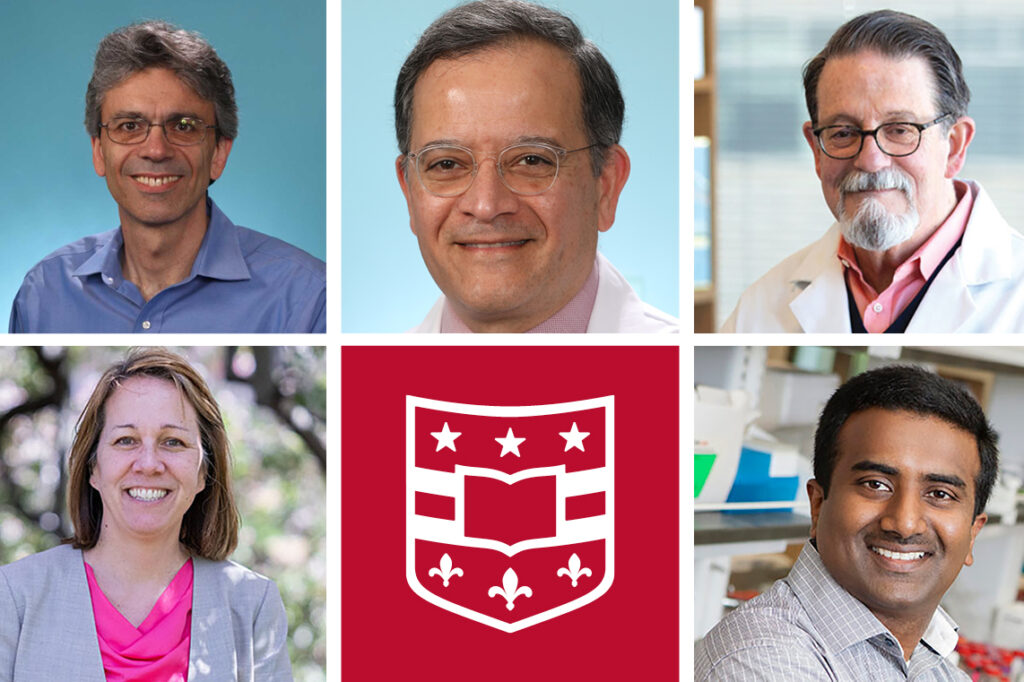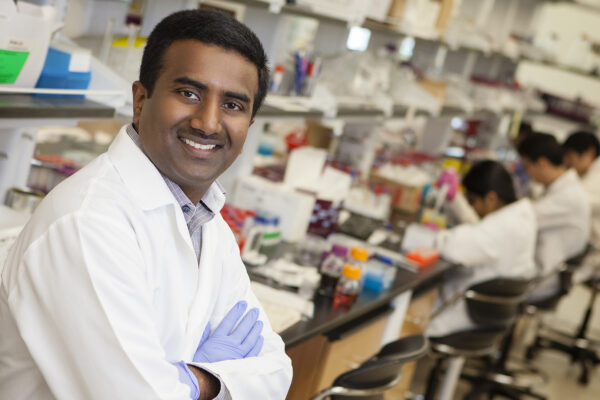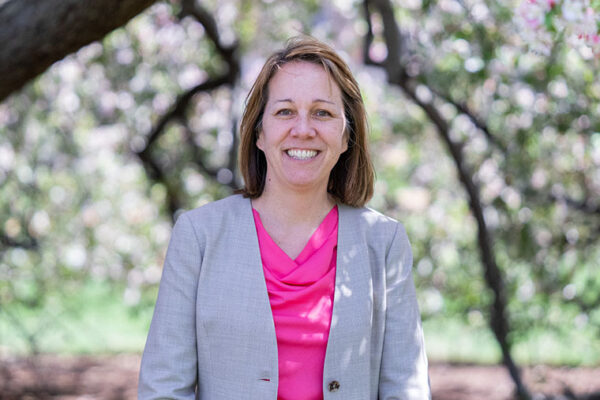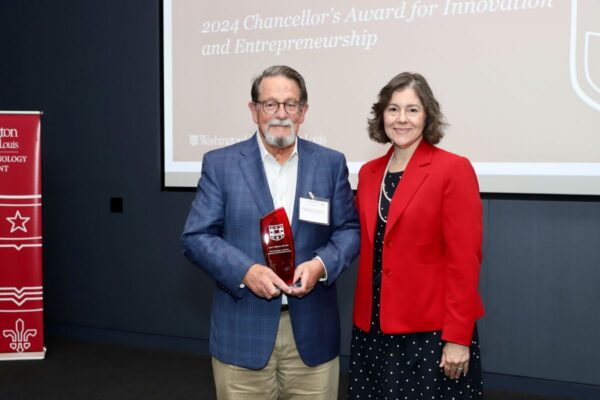Five researchers from Washington University in St. Louis have been named senior members of the National Academy of Inventors (NAI).
Among the new senior members are three researchers from the School of Medicine: Rajendra Apte, MD, PhD, Aaron DiAntonio, MD PhD, and John DiPersio, MD, PhD; along with Sophia Hayes, PhD, a professor of chemistry in Art & Sciences, and Srikanth Singamaneni, PhD, the Lilyan & E. Lisle Hughes Professor at the McKelvey School of Engineering. They are among the 162 new senior members who will be inducted at the NAI’s annual conference in June.

Rajendra Apte
Apte is the Paul A. Cibis Distinguished Professor of Ophthalmology and Visual Sciences and the vice chair for innovation and translation in the Department of Ophthalmology. Apte’s research investigates the role of the immune system and metabolism in regulating pathogenic angiogenesis and neurodegeneration that is characteristic of some visual disorders.
Apte holds 28 patents for treatments or early testing for different eye conditions. Apte founded Mobius Scientific, a WashU startup that develops therapies to treat retinal diseases. He is also a founder of Metro Biotech International, which is developing therapies for diseases of aging and of disruptions to the metabolic system.
Aaron DiAntonio
DiAntonio, the Alan A. and Edith L. Wolff Professor of Developmental Biology, is being recognized for outstanding contributions to the field of neuroscience, especially for showing how nerves respond to injury and disease and for developing ways to protect them from degeneration.
After injury and in some diseases, axons — the long fibers of nerve cells throughout the body — spark a self-destruct mechanism that disrupts communication in the nervous system. This is common to many neuronal injuries and diseases, revealing potential for a treatment for multiple disorders.
Working with WashU’s Office of Technology Management (OTM), DiAntonio co-founded Disarm Therapeutics, a startup developing medicines to stop the loss of axons and to prevent or treat a range of diseases, which has been acquired by Eli Lilly.
John DiPersio
Oncologist DiPersio, the Virginia E. & Sam J. Golman Endowed Professor of Medicine, is being recognized for outstanding contributions to understanding blood cancers and for development of new ways to improve therapies for such cancers, including leukemia and lymphoma.
DiPersio treats patients at Siteman Cancer Center, based at Barnes-Jewish Hospital and WashU Medicine. His work focuses on improving stem cell transplantation and developing novel cell-based immunotherapies. Working with OTM, he co-founded Wugen, a WashU startup creating investigational cellular immunotherapies. He developed so-called “universal” CAR-T cell therapies, which don’t require the donor and recipient to have matching immune systems.
DiPersio is developing small-molecule drugs to help collect more healthy stem cells from donors more easily, increasing the chances for successful transplants.
Sophia Hayes
Hayes is vice dean of graduate education in Arts & Sciences, where she leads graduate study in 22 PhD and 16 master’s granting programs. Under her leadership, new graduate training includes technology transfer topics, commercialization and communication of research to lay audiences.
Hayes has spearheaded efforts to grow innovation and technology transfer broadly, helping to create a culture of research with commercial potential and that can be leveraged for societal benefit.
A professor of chemistry and an expert in nuclear magnetic resonance spectroscopy, Hayes is also a principal investigator for WashU’s National Science Foundation research traineeship program, LinQ: Linking Quantum Sensing Technologies across Disciplines.
Srikanth Singamaneni
Singamaneni, the Lilyan & E. Lisle Hughes Professor in the Department of Mechanical Engineering & Materials Science, is an international pioneer in the design, synthesis and biomedical applications of plasmonic nanostructures.
His research integrates nanotechnology and biomaterials to create innovative products with applications from diagnostics to wastewater treatment.
His lab has pioneered the design and synthesis of ultrabright fluorescence nanolabels and devised methods to preserve biomolecules under harsh conditions. He holds numerous U.S. patents and licenses the core plasmonic fluors technology to Auragent Bioscience, where he is co-founder and chief scientific officer.


